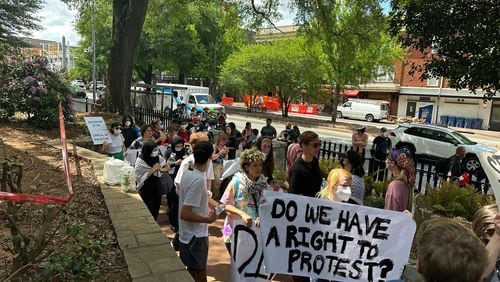We talk with Norma Joy Barnes, chief executive officer and president of the Community Council of Metropolitan Atlanta Inc.
Q: What was the impetus for the Priority Male Initiative?
A: Throughout my career, I saw what young black males face. I was a caseworker with a United Way agency; a volunteer coordinator for an agency to service at-risk young males returning from the U.S. Job Corps; a senior investigator and mediator with the Equal Employment Opportunity Commission, and a mentor to a male in a juvenile detention center. There were existing programs for youth and teenagers; however, those from the ages of 18 to 28 were underserved. This realization refueled my desire to make a difference in the lives of at-risk youth and young black males. In 2008, this vision was realized with the incorporation of the Community Council of Metropolitan Atlanta as a nonprofit organization and the creation of the Priority Male Initiative.
Q: What is the Initiative’s selection process?
A: At-risk young men apply for the program by submitting applications to the CCMA office and website. Qualified applicants are interviewed. Those who exhibit the most need and readiness are selected.
Q: What makes the Initiative different from similar programs?
A: The Initiative provides resources that help young black men reach their potential — academically, vocationally, economically and personally. The goal is accomplished by focusing on young men as individuals and structuring the program to help meet specific needs. Students are provided training in self management, goal setting, etiquette, their heritage, critical thinking, interpersonal relationships, fatherhood, conflict resolution, career development, financial literacy, communications skills, interviewing skills, vocational exploration, entrepreneurship and other life skills. They are assigned mentors and life-skill coaches for one year.
Q: Could this could be offered on a grander scale?
A: There is a documented need for services; more than 100 men applied for enrollment in the 2014 Institute. The problem is that we are not funded and cannot provide books, supplies, MARTA cards and lunch for more than 20 at any given time.
Q: How does this fit with the president’s “My Brother’s Keeper” campaign?
A: "My Brother's Keeper" fits with what CCMA has been doing for six years. The goal of My Brother's Keeper is to help ensure boys and young men of color have opportunities to reach their full potential. This has been the goal of the Priority Male Initiative.
Q: Does your organization plan to embrace the president’s initiative?
A: Yes. We are in need of funding and resources to continue the current Initiative program and expand future programs. Until that time, we are seeking employment opportunities, MARTA cards and funding to enhance the 2014 sessions, including the fall program scheduled for September. By helping young black males become productive and contributing members of our society, CCMA will enhance the socioeconomic status of the metropolitan Atlanta area and the country as a whole. Fewer than 8 percent of young black men have graduated from college, compared with 17 percent of white males. The unemployment rate for young black men is more than twice the rate for whites. More than 20 percent of young black men live in poverty, compared with 10 percent of white men. Black men are disproportionately represented in the criminal justice system. Too many black males grow up without fathers or positive male role models.





